The greatest movies NEVER made (part 3) - Michael Cimino's MAN'S FATE
Published in 1933, Man's Fate is one of those books which defy time as well as cinema. Half a dozen great names of the 7th art have tried, dreamed, and failed to adapt André Malraux's book to the big screen, but none has been so persistent as the late Michael Cimino.
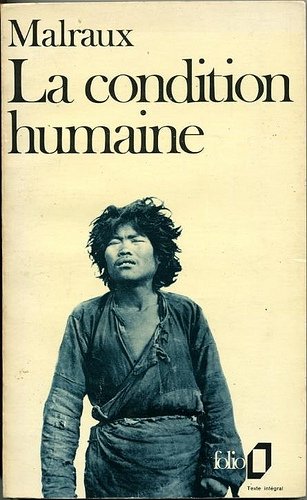
Man's Fate is the work of André Malraux and tells the stories of a handful of characters (Europeans, mostly, but not only) in 1927 in Shanghai, China. It is based on the true events called the Shanghai Massacre. In March 1927, the Chinese Communist Party effectively manages to take over the city through strikes and direct action. However, soon after, a split occurs between the Communists and the Kuomitang (nationalists forces) and the backlash is terrible... You can search online and find terrible pictures of the ensuing repressions in the streets against the Communists. This insurrection effectively marked the beginning of the Chinese Civil War.
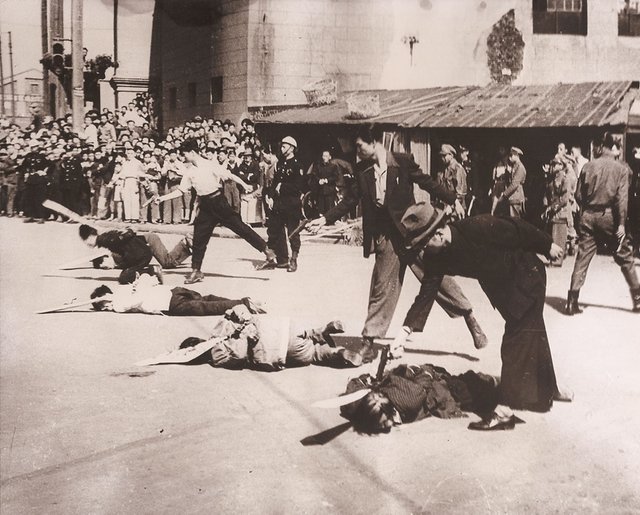
[execution of suspected communists in a street of Shanghai by thugs of the Kuomitang, April 1927]
In spite of its philosophical content and the intricacies of the Chinese political landscape, the books remains a captivating story of treasons and urban guerilla with such immemorial scenes as the (introductory) murder under the mosquito net, the attack of the armoured train, the taking of the police station and the suicide attack on a general's car and so on... An explosive cocktail of hope, hate and tragedy.
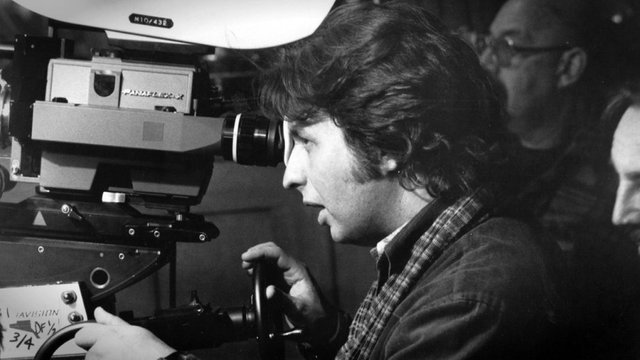
Cimino is of course the golden boy of the New Hollywood, the little genius who took down the lust for war of USA in "The Deer Hunter" and eventually burned his wings with the epic failure about the American Dram of "Heaven's Gate". No wonder no one wanted to fund his pet project to adapt the "intellectual" book of a French writer. In the end, what remains of that doomed movie must be grasped through the interviews given by Cimino along the years.
First of all, Cimino makes clear that he was not so intent on following the order of the book itself. He despises the script of Costa-Gavras who opened with the famous first scene of "the assassination under the mosquito net" : "A script which starts like this is doomed from the start. One has no idea about the shy, the how, the who. There is no emotion."
Anyway, Cimino is very clear about that : "The book has no narrative frame". Which is, according to me, slightly wrong. The narrative frame is diffuse, split between distinct characters who all have a part in it... Or try to have. But in the end, this is the theme of the book: is really man in control of History or is man just a blind tool of the forces of History ?
However, Cimino defended himself from making an intellectual movie. He was very clear about it in another interview: "What is unbelievable with Malraux is his vision, which is very strong. So, when you adapt this book, you have to do two things: be very careful to keep the essence of his work and what you don't keep, you have to invent the rest but to be able to stay at the same level. To maintain the vision. I have tried and it has been very intense. I have not left my library during a whole month. Trying to sustain that level, it is a real challenge. We have been to China to prepare but the places have really changed a lot. No, Man's Fate is not intellectual."
Along the years, Cimino benefited from the help of others scriptwriters. If he is not very grateful of the help of John Briley (the author of "Gandhi" by Richard Attenborough) whom he considers as "mediocre", he enjoyed the help of Robert Bolt, who probably was able to give to the script the same epic scope as he gave to David Lean's "Lawrence of Arabia".
We can be sure of its overtly transparent political theme and the hability of the novel to capture the essence of History: "I have always loved History, and to dive into geographical maps... And by doing so you learn this: throughout the centuries, it is the same story in all the countries: young men are giving away their lives for the ideas of old cranky men. I can't stand that idea anymore. [...] I can't say too much, but that is the idea of my script. It is the story of Kyo, who dies of believing too much into the lies of his father. At the end, May, Kyo's wife, confronts the father by saying to him: "You are the one who has killed your son. You are responsible. You and your ideas, you must accept that ordeal..." She looks at him and goes away."
One must wonder what would have come out of a movie about the fight to make the chinese proletariat rise up against the capitalists exploiters in pre-war China. Cimino is known and renown for his epic use of idyllic and majestic nature landscapes. There would have been none there: the action is mostly stuck in the filthy streets of Shanghai, in the dark factories, on the docks, in the brick jungle of the sweatshops. However, if you take a look at old photographs (below) of Shanghai in the early years of the XXth century, you realize that Shanghai was not far off New York: the influence of Europe is obvious, in the architecture and the clothes... Basically, it could have been Sergio Leone's "Once upon a time in America" transposed in China.
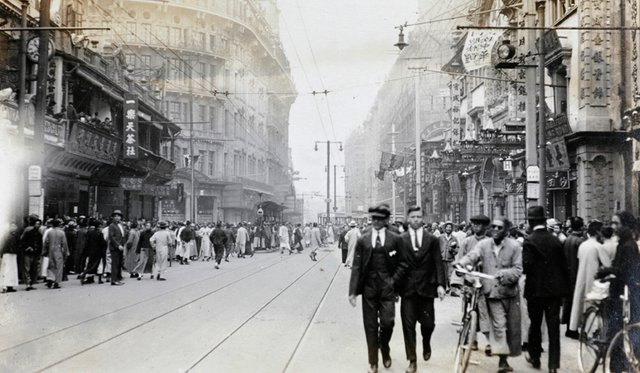
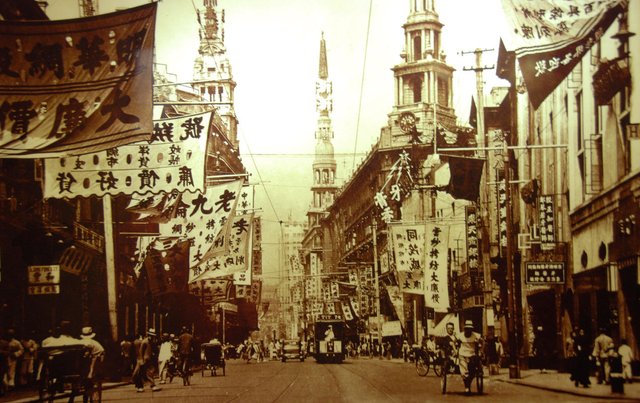
As for the casting, Cimino had his eyes on the big names. Invited to Venise in 2001 to present his novel "Big Jane", Cimino let journalists into the confidence and dropped some names. I will try to make a short casting according to them (but of course I can't say that it was true):
- Johnny Depp : Kyo. The young revolutionist, the son of a chinese woman and a French professor (Gisors). He wants to devote his life to the Cause, sacrifice it even, but does not know for sure if this is going to help anything. Of course Depp has no chinese blood but he could well have pulled it off.
- Uma Thurmann: obviously, she was destined to be May. The only real important feminine character of the novel, the wife of Kyo.
- Alain Delon: Gisors. The father of Kyo, the old philosopher who keeps his hands clean but sends young men (like his own) to their death with their own philosophical ideas.
- Daniel Day-Lewis: Ferral. The French capitalist and banker who exploits without qualms the Chinese people with the help of the military, and tries to save what he can from the uprising.
- John Malkovich: the baron Clappique. The wildcard of the novel, the ruined aristocrat who balances between the two sides and is addicted to gambling.
It seems that Cimino had even an agreement with the Chinese governement in order to begin the shooting. But eventually, the financement collapsed. The partners move to other projects, less polemical, less risky. Michael Cimino will never make that movie. Nobody will make that movie like him.
He died last summer. His movie with him.
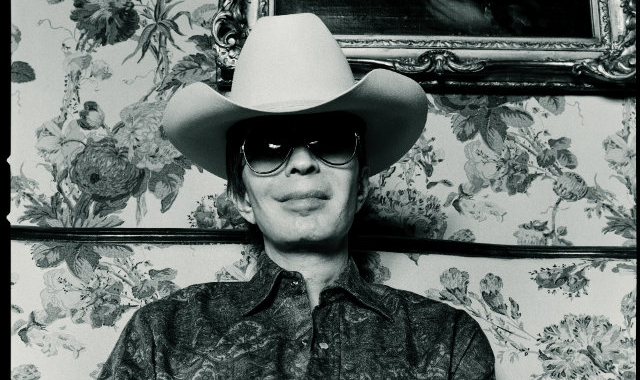
Sources:
http://www.allocine.fr/article/fichearticle_gen_carticle=701342.html